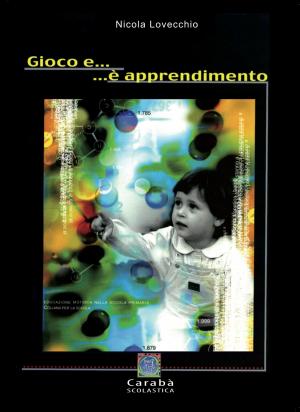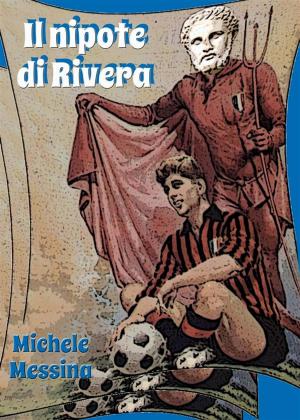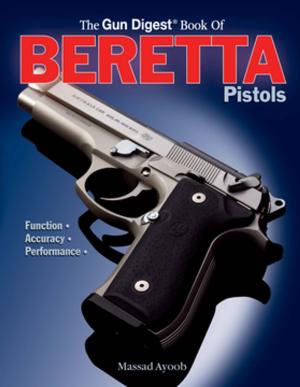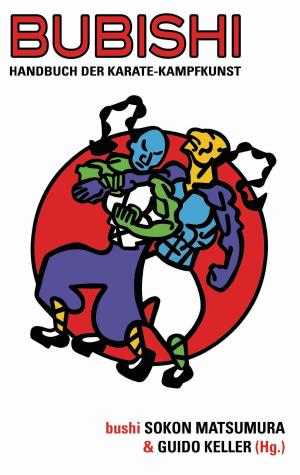| Author: | Jörg Madinger | ISBN: | 9783956412332 |
| Publisher: | DV Concept | Publication: | October 18, 2018 |
| Imprint: | DV Concept | Language: | English |
| Author: | Jörg Madinger |
| ISBN: | 9783956412332 |
| Publisher: | DV Concept |
| Publication: | October 18, 2018 |
| Imprint: | DV Concept |
| Language: | English |
The five training units in this book focus on training of handball basic skills for young players aged 9 to 12 years. The individual training units deal with passing precision, shooting movements, dribbling technique, breaking away from man coverage, and passing feints, respectively. The players develop the individual skills methodically and step by step from basic to complex level. You may adjust the complexity of the exercises to your team’s level of performance by intensifying the individual drills. This book contains the following training units: TU 1 – Improving passing precision during running movements The objective of this training unit is to improve the passing precision during running movements, in particular. Following warm-up consisting of combined running moves and passing variants and a short game, the players practice passing while running at full speed during the ball familiarization phase. The goalkeeper warm-up shooting and the subsequent series of shots also focus on playing passes while running at full speed. A second series of shots combines double passes on a defined running path with quick passes in direction of the goal. Finally, the players practice playing precise passes under pressure in a small group game and a closing game. TU 2 – Developing and improving the shooting movement This training unit focuses on acquiring and improving correct shooting movements. This means shooting while standing and shooting while running, without a jump however, in order to highlight arm and body movements. Following a warm-up exercise which already involves shots, the players practice the shoulder and arm rotation for shooting and subsequently combine these moves in a passing competition. In a short game, the players implement the shooting movements in a game situation. This is followed by the goalkeeper warm-up shooting and a closing series of shots which focuses on shooting at the goal. TU 3 – Improving the dribbling technique while observing the game situation The objective of this training unit is to improve the dribbling technique focusing on simultaneous observation of the game situation. The players combine movements with dribbling already during the warm-up exercise; in a sprint contest and a short game, they practice dribbling at increased speed. Following the goalkeeper warm-up shooting, there will be a series of shots with additional coordination tasks in which the simultaneous observation of signs will be added. The subsequent small group exercise demands observation of the game situation while dribbling the ball. In a closing game, the players should implement what they practiced before. TU 4 – Breaking away from man coverage using running feints This training unit focuses on breaking away from man coverage without a ball, by means of running feints. Following warm-up, a sprint contest with changes of direction, and a team ball variant, the players practice quick changes of direction one more time during the goalkeeper warm-up shooting exercise. Subsequently, there will be an individual offense exercise focusing on breaking away by means of running feints. The players will further elaborate this topic in two small group exercises and finally implement what they practiced before in free play. TU 5 – Gaining positional advantage using passing feints The key topics of this training unit are passing feints and how to combine them with a breakthrough or a return pass to a teammate. Following a warm-up running exercise, the players already learn how to pass the ball cleverly in a short game; this will be further developed in the ball familiarization phase. In the goalkeeper warm-up shooting exercise, the players practice passing feints in combination with a 1-on-1 breakthrough; in the subsequent series of shots, they combine the passing feint with a return pass to their teammate. Both variants will be implemented twice in the subsequent 1-on-1, 3-on-2, and 4-on-4 games.
The five training units in this book focus on training of handball basic skills for young players aged 9 to 12 years. The individual training units deal with passing precision, shooting movements, dribbling technique, breaking away from man coverage, and passing feints, respectively. The players develop the individual skills methodically and step by step from basic to complex level. You may adjust the complexity of the exercises to your team’s level of performance by intensifying the individual drills. This book contains the following training units: TU 1 – Improving passing precision during running movements The objective of this training unit is to improve the passing precision during running movements, in particular. Following warm-up consisting of combined running moves and passing variants and a short game, the players practice passing while running at full speed during the ball familiarization phase. The goalkeeper warm-up shooting and the subsequent series of shots also focus on playing passes while running at full speed. A second series of shots combines double passes on a defined running path with quick passes in direction of the goal. Finally, the players practice playing precise passes under pressure in a small group game and a closing game. TU 2 – Developing and improving the shooting movement This training unit focuses on acquiring and improving correct shooting movements. This means shooting while standing and shooting while running, without a jump however, in order to highlight arm and body movements. Following a warm-up exercise which already involves shots, the players practice the shoulder and arm rotation for shooting and subsequently combine these moves in a passing competition. In a short game, the players implement the shooting movements in a game situation. This is followed by the goalkeeper warm-up shooting and a closing series of shots which focuses on shooting at the goal. TU 3 – Improving the dribbling technique while observing the game situation The objective of this training unit is to improve the dribbling technique focusing on simultaneous observation of the game situation. The players combine movements with dribbling already during the warm-up exercise; in a sprint contest and a short game, they practice dribbling at increased speed. Following the goalkeeper warm-up shooting, there will be a series of shots with additional coordination tasks in which the simultaneous observation of signs will be added. The subsequent small group exercise demands observation of the game situation while dribbling the ball. In a closing game, the players should implement what they practiced before. TU 4 – Breaking away from man coverage using running feints This training unit focuses on breaking away from man coverage without a ball, by means of running feints. Following warm-up, a sprint contest with changes of direction, and a team ball variant, the players practice quick changes of direction one more time during the goalkeeper warm-up shooting exercise. Subsequently, there will be an individual offense exercise focusing on breaking away by means of running feints. The players will further elaborate this topic in two small group exercises and finally implement what they practiced before in free play. TU 5 – Gaining positional advantage using passing feints The key topics of this training unit are passing feints and how to combine them with a breakthrough or a return pass to a teammate. Following a warm-up running exercise, the players already learn how to pass the ball cleverly in a short game; this will be further developed in the ball familiarization phase. In the goalkeeper warm-up shooting exercise, the players practice passing feints in combination with a 1-on-1 breakthrough; in the subsequent series of shots, they combine the passing feint with a return pass to their teammate. Both variants will be implemented twice in the subsequent 1-on-1, 3-on-2, and 4-on-4 games.















